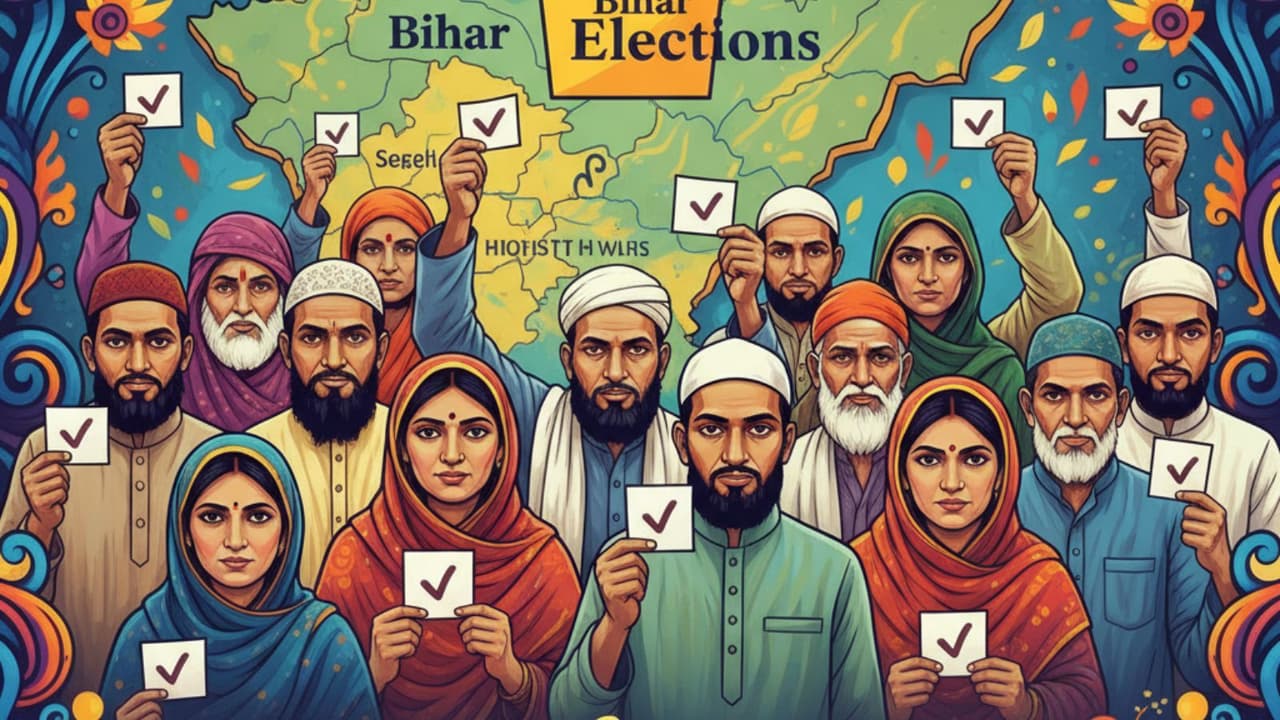Bihar elections 2025: Bihar has only 19 seats despite 17-18% Muslim population in Bihar. The main reasons for this are caste politics, parties ticket strategy, social backwardness and organizational weakness, which limit their representation.
Patna: The percentage of Muslim population in Bihar is about 17-18 percent, which becomes a large part in the total population of the state. Despite this, his representation in the current assembly is limited to only 19 seats. This figure indicates inequality present in the democratic system and raises many serious questions. Is this just the result of political equations, or is the voice of Muslims not reaching the assembly due to socio-economic backwardness and organizational weakness? Many layers are revealed when these questions get to the bottom of these questions.
Effect of caste based politics
Caste and community -based equations have a profound influence on Bihar politics. There are also many ethnic classes in Muslim society, such as Pasmanda, Sheikh, Qureshi, Siddiqui etc. Political parties understand these classes and see them as different vote banks, but do not give them place as a holistic political voice. Many times Muslim votes are scattered, due to which their influence does not reach seats. The result of this is that due to caste equations, their number and influence in the society are limited.
Electoral strategy and ticket distribution
Political parties prioritize the calculation of vote bank in ticket distribution. The NDA, the Grand Alliance or other parties carry forward the candidates on the basis of their traditional equations, whose ethnic identity can give them a definite victory. In such a situation, limited seats are given to Muslim candidates. It is also worth noting that many parties include Muslim society symbolically, but they do not get enough space in policy making and leadership.
Social and economic backwardness
The large part of the Muslim society is economically and educationally backward. Political participation of poor and less educated classes is limited. The benefit of government schemes also does not reach them completely. Issues like employment, education, health are obstructed in increasing their political strength. Due to this, the impact of his social status is seen as a low participation in the assembly.
Organizational weakness
The political organization capacity of Muslims is limited. Lack of comprehensive leadership, lack of resources and marginalized in the priorities of political parties make them away from the decision process. Many times Muslims are used only like vote banks, while their ground problems do not become a permanent platform.
